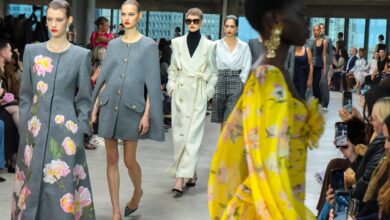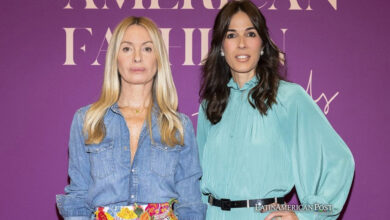This was the Fashion Transparency Index of the Fashion Revolution Week
Listen this article
We are halfway through the Fashion Revolution Week, and the Transparency index has already been released, which evaluates the best practices of 200 of the most important brands

This Monday began Fashion Revolution Week, an event that this group carries out every year in the last weeks of April in all the countries where it is. This peculiar week of fashion was born as a commemoration of the collapse of the Rana Plaza in Bangladesh in which 1138 people died, and another 2437 were injured on April 24, 2013. The event invites all fashion brands to respond with the hashtag #yohiceturopa to demonstrate transparency in its production and distribution chain. Thus, the Fashion Revolution Week is an event for the consumer to ask their favorite brands who made their clothes, so that they respond to their practices in the production of clothing and then the consumer is responsible for the products and clothes that he buys.
Leer en español: Así estuvo el Índice de Transparencia del Fashion Revolution Week
Within the framework of this week of fashion, the Fashion Revolution group follows up that goes far beyond the use of a hashtag in social networks and whose result is the Fashion Transparency Index. This study takes as a criterion the information published by the 200 most significant brands in the world and takes as a basis its policies of good practices (ie, sustainable materials, waste management, wage gap, dignified conditions for its workers, cruelty-free production, etc) to evaluate in what percentage they are transparent and offer with this the complete information to the consumer so that this can take charge of the clothes that he buys and can make an ethical consumption of fashion. We tell you here some of the findings of the research that resulted in the 2019 Index.
Read also: Beyond models: the most powerful women in the fashion industry
The scores
The report scores the transparency of practices of the 200 largest and most influential brands in the world in ranges of 10 points from 0 to 100. The transparency scores in all these brands is unfortunately low. None has obtained more than 70 points, and the most is in the range of 0 to 10.
– From 0 to 10: Of the 200 brands, 72 obtained this score. To this first rank belong the brands that do not give the consumer any information about their hiring policies or raw materials. Here is an essential part of the 200 most important brands in the world. The brands with the lowest score, that is, with 0 transparency points are Longchamp, Max Mara, Heilan Home, Beanpole, Metersbowne, Youngor, Jessica Simpson, Mexx, Elie Tahari, and Tom Ford.
– From 11 to 20: Here are the brands that, although they have not published any information, could do so in the future with data on their production and their suppliers, but not on other practices such as the gender approach, the handling of textile waste and hiring policies. In this range are 47 of the 200 brands, including Fendi, Marc Jacobs, Mango, Falabella, El Corte Ingles, Macy's.
– From 21 to 30: The average score of the brands was 21%. These brands could publish in the future some detailed information about their environmental and social goals. Among them are Victoria's Secret, Dior, Louis Vuitton, Ralph Lauren, among others.
– From 31 to 40: These brands are already publishing information about their environmental and social goals, and it is likely that soon there will be transparency about other issues such as gender focus and carbon emission reduction. Brands such as Gucci, Uniqlo, and Target obtained this score.
– From 41 to 50: The brands with this score are scheduled shortly to publish more detailed information on their suppliers and their production chain. They have already posted other essential information that the other brands have not published. In this range, there are brands such as Bershka, Pull & Bear, Zara, Stradivarius, Hugo Boss, and Calvin Klein.
– From 51 to 60: These brands have already published all the information mentioned in other ranges and will release their policies regarding human rights soon. Also, they are aware of and study what was agreed in the Bangladesh Agreement for a Better Work. Here are Puma, Converse, Jordan, Nike, The North Face, Gap, Old Navy, Levi Strauss.
– From 61 to 70: Finally, and because no brand obtained a score higher than 70, there are the brands that, in addition to having already published all the previous information, make available to the consumer a list of their suppliers and their chain of production, including where crude raw material such as cotton comes from. They are about to publish more information on other aspects of the fashion business such as the gender approach, guarantees for workers and waste management. The brands with the highest scores were: Adidas, Reebok, Patagonia, Esprit, and H & M.
You can read the full report here.
LatinAmerican Post | Juliana Rodríguez Pabón
Translated from "Así estuvo el Índice de Transparencia del Fashion Revolution Week"




